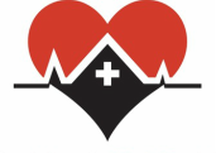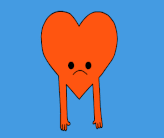5 Types of ShockShock is a life-threatening condition that can be caused by various factors including uncontrolled bleeding or a severe allergic reaction. There are five primary types of shock that individuals may experience and each type has different causes and symptoms. What is shock?Shock is typically experienced when the body is not able to produce adequate blood flow which negatively impacts the body's organs. Various patient of victim presentations include nausea, dizziness, chills, or a weak pulse. However, there are various causes of shock so the symptoms can vary in intensity and duration. There are some type of shock that are more common than other types but with all types of shock it is critical to provide fast and adequate treatment So WHAT ARE THE 5 TYPES OF SHOCK?1. Hypovolemic Shock. Hypovolemic shock is a type of shock that impacts the cardiovascular system. This type of shock is most exacerbated by excessive blood loss or loss of body fluids and subsequently the heart is no longer able to pump sufficient blood for their body to function properly. Hypovolemic shock is most often caused by excessive bleeding leading to low blood plasma, vomiting, and diarrhea. Hypovolemic shock is one of the more common types of shock. 2. Anaphylactic shock Anaphylactic shock is most often experienced when someone ingests something accidently, such as peanuts, and is severely allergic to them. Along with hypovolemic shock, this is one of the more common types of shock. The body releases histamine to counteract the allergen during an episode of anaphylactic shock, which causes the airway to tighten and potentially causes organ inflammation. 3. Cardiogenic shock Cardiogenic shock is often caused by cardiovascular issues which impede the normal function of the heart causing the heart to not pump enough blood through the body. This type of shock is usually caused by myocardial infarction, a heart attack, or another severe heart condition. 4. Neurogenic shock Neurogenic shock is devastating consequence of spinal cord injury (SCI). Other causes of neurogenic shock that are far less common include spinal anesthesia, Guillain-Barre syndrome, autonomic nervous system toxins, transverse myelitis, and other neuropathies. Neurogenic shock is different from spinal shock, which is often more temporary type of shock. 5. Septic shock Septic shock is an infection that spreads throughout the body and can cause organ failure and low blood pressure. The increased susceptibility to septic shock is caused by bacteria, fungi, and some viruses. Risk factors for septic shock include diabetes, chronic kidney and liver disease, burns, trauma, and use of corticosteroids This type of shock most commonly affects infants, seniors, and those that are immunocompromised. Learn First Aid With Help-A-Heart CPRWith first aid training, you’ll be able to make a huge difference in these situations and provide emergency assistance to family members, coworkers, and neighbors. Are you ready to learn more? Sign up for Basic First Aid with Help-A-Heart CPR!
Our first aid courses cover patient assessment, muscle and bone injuries, trauma/bleeding wounds, and much more. You’ll gain the skills and knowledge required to help patients––and possibly even save a life. With plenty of course dates, times, and locations, it’s easy to fit training into your busy schedule. To get started, contact us by phone at (210) 380-5344 or online through our contact form. We can’t wait to hear from you!
Comments
|
AuthorDr. Tracy A. Jones is the CEO of Help-A-Heart CPR, LLC and an American Heart Association, ASHI, and American Red Cross Master Program Trainer, Instructor, & AHA Faculty Member located in San Antonio, Texas. Archives
June 2024
Categories |
Help-A-Heart CPR, LLC | 1747 Citadell Plaza Suite 101 | San Antonio, Texas 78209 | (210) 380-5344 | [email protected]
Copyright © Help-A-Heart CPR, LLC 2024
100% Certification Acceptance
We promise your employer, school, or agency will accept the certification card we issue to you. If there is a question of acceptance or validity, simply send us an email at [email protected] with full details. We will reach out to the individual/entity and provide accreditation information. If still there’s a question, we will provide you with a full refund of your class fee. It’s that simple.
We promise your employer, school, or agency will accept the certification card we issue to you. If there is a question of acceptance or validity, simply send us an email at [email protected] with full details. We will reach out to the individual/entity and provide accreditation information. If still there’s a question, we will provide you with a full refund of your class fee. It’s that simple.
|
Communities Served
ALABAMA: Birmingham
ARKANSAS: Fayetteville, Hot Springs, Jonesboro, Little Rock NEW MEXICO: Albuquerque TENNESSEE: Knoxville TEXAS: Amarillo, Arlington, Austin, Bandera, Bastrop, Boerne, Brownsville, Comfort, Converse, Corpus Christi, Dallas/Ft. Worth, Del Rio, Dripping Springs, El Paso, Floresville, Fredericksburg, Georgetown, Harlingen, Houston, Junction, Katy, Kerrville, Kingsville, Kingwood, Laredo, Lubbock, Lufkin, McAllen, Midland, New Braunfels, Odessa, Pleasanton, Round Rock, San Angelo, San Marcos, Schertz, Seguin, Taylor, Temple, Texarkana, Tyler, Universal City, Victoria, Waco, The Woodlands |
Why Choose Help-A-Heart CPR?
1. Flexible Scheduling
2. On and Off Location Training Available 3. Casual, Fun Atmosphere 4. Best Price Guarantee 5. All Instructors are AHA and/or ARC certified 6. 5 Star Google Reviews 7. Blended Learning (Online & Skills Check) Available 8. Meets OSHA & College CPR Requirements 9. Get Certified Within 3-4 Hours 10.Certification Is Good For Two Years 11. Official AHA/ARC/ASHI Training Site 12. High Quality Safety Training! |








